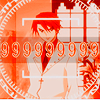If you're wondering what I'm talking about, it's the goddamn biggest thing you've ever seen. </Sakurai>
It's bigger than Twinmold. It's bigger than Hyrule Castle.
Hell, no, I'm not even NEARING the proper scale here. It's bigger than Termina's Moon and Death Mountain. Put together.
No, that's still not big enough... Ah, I've got it. It's bigger than the combined egos of every one of the UWM. That's more like it. (I wonder what that's going to say about me after actually producing this, particularly with the tone I chose for some things. >_<)
Impossible's Zelda Timeline Analysis V1.0, maps and images included
It's the end result of me compiling evidence and arguments since somewhere around 2005. It started as my attempt to just have my own timeline to post for people to see, but it evolved into something much bigger when I decided it needed to have EVERYTHING. Some things twice. Try to read as much of it as possible, because there's even important evidence about TWW and TP that is uncovered via other games, and I don't go into as much detail about some of that again (like the FSA Ganon stuff).
And definitely read the beginning section - despite the fact that I almost never refer to my timeline in that introduction, I believe that through it, the way in which I make my choices becomes so clear that you could actually use it to determine my entire timeline, based on those principles. Which is why I don't chalk peoples' personal timelines up to pure random interpretation... It's all about how we apply principles such as those, particularly with context, developer intent and speculation.
Don't even ask how long this took... Most sections there have either been written at least twice, or were written for the first time recently. I decided to finally finish it and write up all the missing arguments and discussions in roughly the past month, so most of it should be up to date, but it's possible that I've missed something that shouldn't be there. (Aside from extremely new translation stuff, which I'm aware of.) And if there's something I've failed to address, I can certainly add that, as I'm sure this will never really be finished.
I'll have to find a more permanent place to host this, too.
And finally, remember... It's just for fun. Enjoy it. It just shows what kind of insane lengths we can take these things to at times.
Edit: Looks like there is one screw-up in there... I forgot to italicise the Aonuma quote at the start. I'm not going to bother reuploading it right now for that, but it really annoys me, so just know that it should be like the others. >_> If you see any typos, etc. in there, make sure you let me know. There were heaps of times where I accidentally used an acronym for the wrong game, and there may still be a couple of those floating around, so if something doesn't make sense, that would be why.
Edit 2: Fixed a couple of embarrassing mistakes. If you see any more, please tell me, and replace your file with the newest one.
Edited by Impossible, 25 April 2008 - 11:27 PM.














